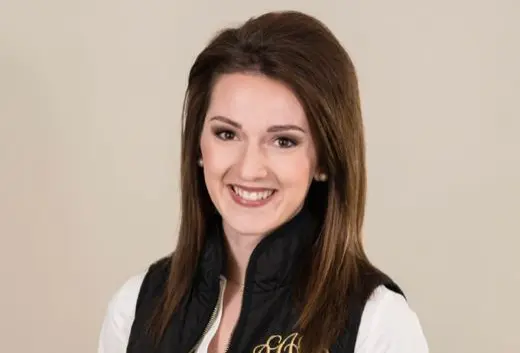Meet USTA Professional member
Rachel Johnson



Rachel Johnson is a former competitor and current USTA Judge from Indiana. Inside Loop sat down with her to talk about the transition from athlete to professional. Here's what she had to say:
Inside Loop: As one of USTA's “newer” judges, what have you learned most from being a USTA professional?
Johnson: I became a judge after having competed for many years, knowing that I wanted to remain involved in baton twirling. In the several years I have judged, I became a Level III judge quite quickly and was able to judge local, state, regional and national competitions. I laugh about this now, but I was far more nervous to judge my first competition than I was as an athlete at the U.S. Trials! Although I am committed to continual learning, here are some things I have learned in my first few years as a judge and USTA professional:
Our professional community is approachable. It is to your benefit, as well as to other judges and the broader twirling community, to discuss opinions and ask questions. Each time I judge, my perspective is broadened. It can be intimidating to ask questions of well-experienced judges that you respect highly, but don't be shy! I have never been turned away. I am grateful for the many people who have answered questions or provided an opinion because it helps me continue to become a better judge.
It is as mentally challenging to be a judge as it is to be a competitive athlete! I was shocked at how exhausted I was after some of my first judging assignments. It is paramount to be focused and give every single athlete that steps into your lane your undivided attention. As a new judge, I immediately had so much respect for our seasoned judges. It is not easy to remain engaged and impartial for hours on end.
Whether you are an athlete, a coach, a judge, a parent or a volunteer, you are a reflection of USTA. As a judge, you will never make all perfect decisions, but you can be the judge that embodies the USTA philosophy, is impartial and encouraging and respectful to all athletes, coaches, judges and staff. Each time I judge, I remind myself that I want to be the judge I was excited to perform for as an athlete. Be the judge that twirlers want to twirl for and don't forget to SMILE!
Inside Loop: In your opinion, what can USTA do to encourage our retiring athletes to pursue a role as a USTA judge or coach
Johnson: All levels of judges and coaches are important to our organization's success. USTA has done a great job of transitioning judge and coach seminars to an online format, as well as maintaining reference materials online. This has made it convenient to attend seminars when travel may have been a barrier and find information at a moment's notice. I would like to see USTA encourage our retiring athletes to pursue coaching and judging roles by offering an intensive workshop dedicated to that cohort shortly after the end of the season, or by proactively having personalized conversations and mentoring before the seminar process begins, so that new judges and coaches feel like they know the path to execute to and achieve their goals. It can be somewhat difficult to navigate the process if you are stepping out of the competitive world or have been away from twirling for a while. I would also like to see shadowing at competitions become more widely practiced. Before I was asked to shadow, I didn't know it was something I could do at a USTA competition. This was some of the best preparation I did before judging on my own because there's nothing quite like the pressure of being in the “hot seat.” Every seat becomes a hot seat when you are judging.
Inside Loop: Tell us three things that the twirling world doesn't know about you.
Johnson: They often go unnoticed at competitions if you have them… I have three brothers - Erich, Blaine, and Brett. I am their favorite sister.
I completed three Bachelor's degrees during my four years of undergrad - economics, political science and German language. I now work in a field somewhat unrelated to my degrees. I am a lead operations analyst for a nation-wide private healthcare company, and my day-to-day work involves lots of programming, statistics and problem-solving. Ironically, I never loved math.
I love playing board games and card games! Some of my favorites are Catan, Monopoly Deal, Spades or Gin Rummy.